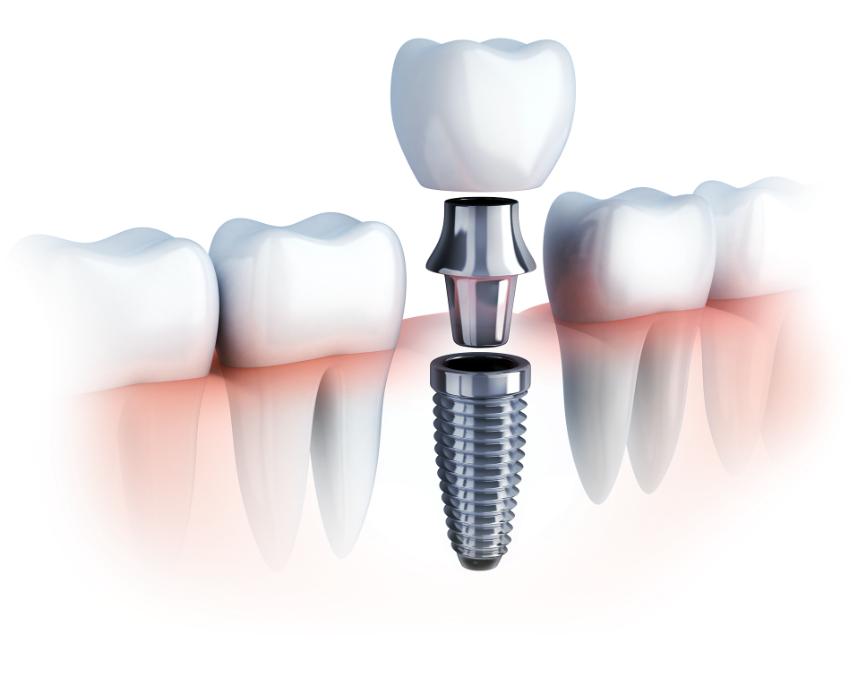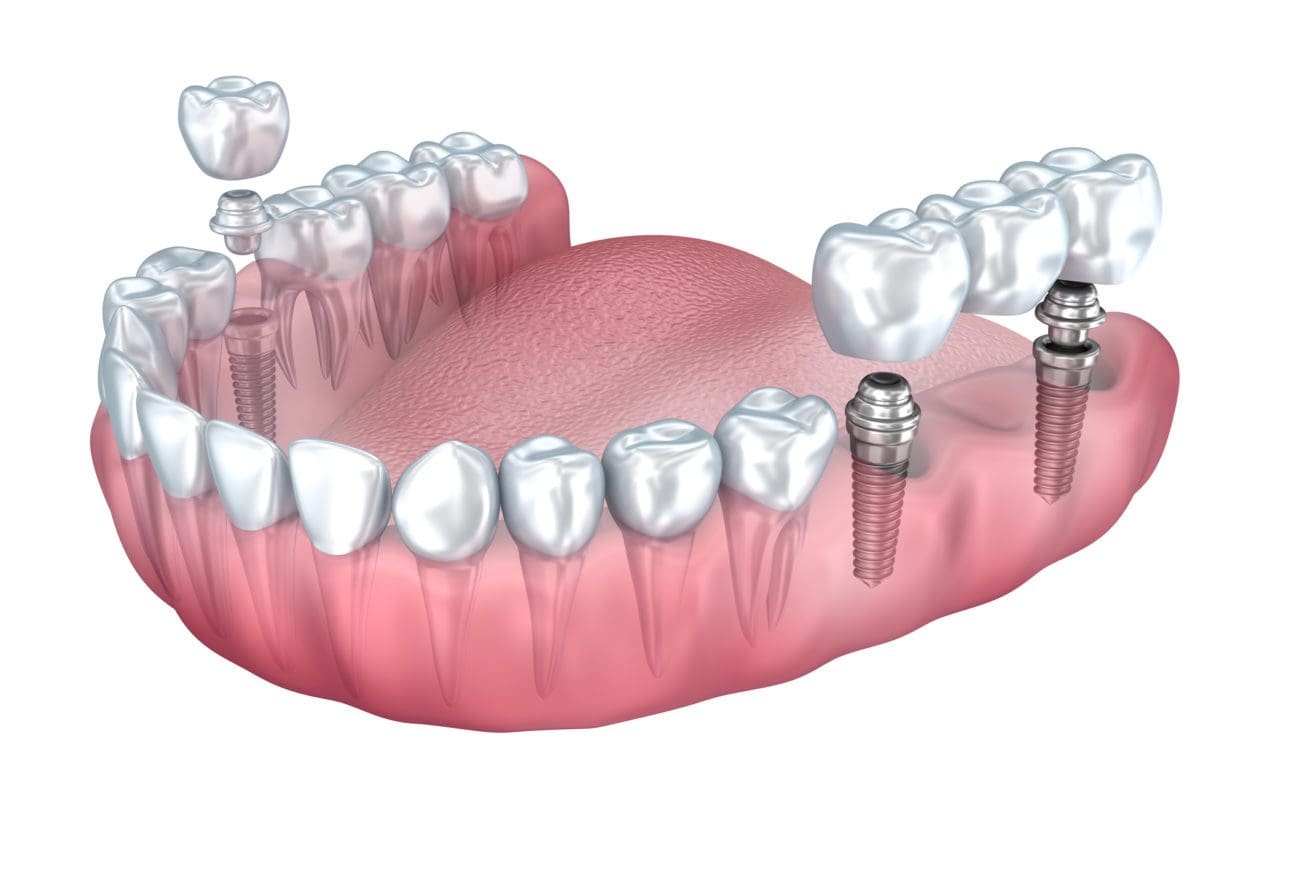Facts About Dental Sense Revealed
Facts About Dental Sense Revealed
Blog Article
The 30-Second Trick For Dental Sense
Table of ContentsNot known Incorrect Statements About Dental Sense The 7-Second Trick For Dental SenseAn Unbiased View of Dental SenseExamine This Report on Dental Sense
are medical tools surgically dental implanted into the jaw to restore an individual's capacity to chew or their look. They provide assistance for artificial (fake) teeth, such as crowns, bridges, or dentures. When a tooth is lost as a result of injury or illness, a person can experience issues such as quick bone loss, faulty speech, or changes to eating patterns that result in discomfort.Dental dental implant systems include an oral implant body and dental implant joint and may likewise consist of a joint addiction screw. Kids dental. The oral implant body is operatively put in the jawbone instead of the tooth's root. The dental implant joint is normally affixed to the dental implant body by the abutment addiction screw and extends with periodontals into the mouth to support the attached fabricated teeth
(https://hearthis.at/matthew-music/set/dental-sense/)Structure of The Oral Implant System picking oral implants, speak to your oral supplier regarding the possible advantages and threats, and whether you are a candidate for the procedure. Things to consider: Your general health is an important consider identifying whether you are a good candidate for oral implants, the length of time it will take to recover, and the length of time the implant may stay in place.
Cigarette smoking may affect the recovery procedure and decrease the long-lasting success of the dental implant. The healing process for the implant body might take several months or longer, during which time you typically have a temporary joint instead of the tooth. the dental implant procedure: Carefully adhere to the dental hygiene directions offered to you by your oral company.
All About Dental Sense
Implant failing can result in the requirement for an additional procedure to deal with or change the dental implant system. Brings back the ability to chew Restores aesthetic appearance Helps maintain the jawbone from reducing as a result of bone loss Preserves the wellness of the surrounding bone and gum tissues Helps keep nearby (close-by) teeth stable Boosts lifestyle Damages to bordering natural teeth during dental implant positioning Injury to the surrounding cells throughout surgical treatment, such as sinus perforation Injury during surgery (for instance, crack of surrounding jawbone) Poor function, such as feeling like the teeth do not bite with each other normally An experience that the tooth is loosened or turning in position resulting from a joint screw loosening Implant body failing (looseness of the dental implant body) because of systemic infection, which may be more probable in clients with unchecked diabetes mellitus as a result of local infection in bone and gum tissues supporting the dental implant body due to delayed healing, which might be extra most likely in patients that smoke Problem cleansing the gum tissues around the implant, leading to inadequate oral health Unattended gum condition Post-surgical pins and needles due to nerve impingement or damages Constantly notify health treatment carriers and imaging professionals that you have oral implants prior to any magnetic resonance imaging (MRI) or x-ray procedures.
FDA is not familiar with any adverse events reported for MRI or x-ray procedures with dental implants. Oral implants systems are commonly made of materials that comply with international agreement requirements of the International Organization for Standardization (ISO) or ASTM International. These requirements have information of what makes a safe product.

A dental implant is a structure that replaces a missing out on tooth. With screw-like tools, the doctor inserts an implant right into the jawbone, and it serves as an anchor for a man-made tooth, called a crown. A device called a joint connects the synthetic tooth to the oral implant. The crown is tailor-made to fit the person's mouth and match the color of their teeth.
Fascination About Dental Sense
Some individuals are not qualified for oral implant surgical treatment. It is for dental cosmetic surgeons to operate on individuals with: intense illnessuncontrollable metabolic diseasebone or soft tissue illness or infectionIf these issues are resolved, a person can have the surgical procedure. In, oral surgeons avoid operating on individuals with: If individuals with any one of the above undertake dental implant surgical treatment, there is a higher risk of the dental implant falling short.

Dental implant surgery is a personalized process. Provide you time to heal. Attach the post and last crown, bridge or denture.
Next, your doctor will carefully put the oral implant into your jaw. Your doctor will rearrange your gum tissues and close the cut with stitches. If your dental implant is near the front of your mouth, your dentist will certainly make a momentary tooth for you to put on up until you heal. By doing this, you will not have a void in your smile while you recover.
The Greatest Guide To Dental Sense
During the recovery stage, your jawbone ought to fuse to the dental implant. This process can take anywhere from three to 9 months.
When your implant heals, your dentist can connect the joint (little adapter post) and your final remediation (crown, bridge or denture). This generally takes about one hour to finish and might need a 2nd minor surgery. You should not feel any webpage pain during your oral implant procedure because your provider will certainly make use of medicine to numb your gums.
Report this page